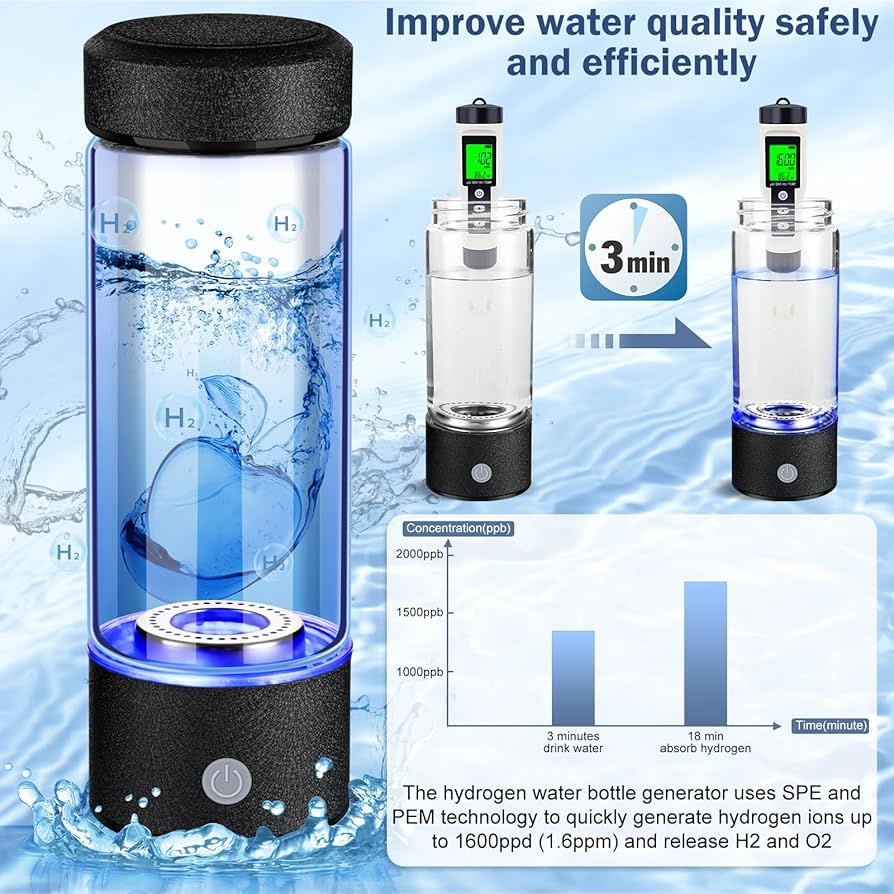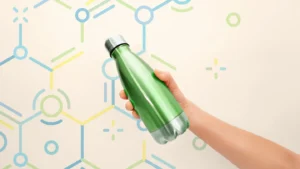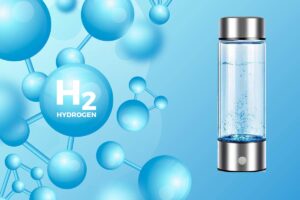When you’re looking into upgrading your drinking water system, two popular technologies often come up: hydrogen‑infusing filters (or hydrogen water machines) and water ionizers. Both claim to offer enhanced health benefits, but they function differently and may suit different needs. Below, we’ll compare hydrogen water filters/machines vs. water ionizers, highlight their strengths and limitations, and help you decide which might be best for you.
What Are Hydrogen Water Filters / Machines?
Hydrogen water machines or filters are devices (either countertop units, pitchers, or under‑sink systems) designed specifically to infuse dissolved molecular hydrogen (H₂) into water. These systems often use electrolysis with a proton exchange membrane (PEM) or special electrodes to generate high concentrations of hydrogen gas that dissolves into the water.
Key features of hydrogen water machines include:
- Focus on maximizing molecular hydrogen content rather than altering pH dramatically.
- Often run shorter cycles or dedicated infusions to reach 1.0–2.5 ppm (or more) of dissolved hydrogen.
- May incorporate purification or filtration of tap water (removing chlorine, VOCs) before hydrogen infusion.
- Consumer‑friendly price range, moderate installation complexity.
Because they prioritise hydrogen generation, these machines are often marketed for antioxidant support, recovery, and cellular health.
What Are Water Ionizers?
Water ionizers are devices that primarily modify water through electrolysis to produce streams of alkaline water (higher pH) and acidic water (lower pH). They often rely on multiple metal plates (e.g., titanium/platinum) to perform the electrolysis. The alkaline stream is intended for drinking.
Important characteristics of ionizers:
- Primary goal: increase pH (alkalinity) and reduce oxidation‑reduction potential (ORP) rather than solely hydrogen content.
- Often produce large volumes of water, designed for household consumption.
- Require sufficiently mineralised tap water (conductivity) to function properly.
- Typically higher cost units with more maintenance (plate cleaning, filter changes).
While some ionizers claim hydrogen content, in many cases the hydrogen levels achieved are modest compared to machines dedicated to hydrogen infusion.
Side‑by‑Side Comparison
Here’s a table summarising the key differences:
| Feature | Hydrogen Water Machines/Filters | Water Ionizers |
|---|---|---|
| Primary objective | Dissolve molecular hydrogen (H₂) into water | Increase alkaline pH, reduce ORP, produce alkaline & acidic streams |
| Typical hydrogen concentration | Moderate to high (e.g., ~1–2 ppm or higher) | Often lower hydrogen levels unless specifically designed |
| pH adjustment | Minimal or neutral pH focus | Wide pH range (alkaline to very acidic) |
| Water source requirement | Works with filtered/standard tap water | May require mineralised water or optimal conductivity |
| Installation & cost | Moderate cost, simpler setup | Higher cost, more complex plumbing/installation |
| Maintenance | Filter changes, electrode cleaning | More frequent plate cleaning, filter changes, higher upkeep |
| Best suited for | Individual use, antioxidant/hydrogen focus | Whole‑house use, pH/alkalinity focus |
When to Choose a Hydrogen Water Machine
You might favour a hydrogen water machine if your priorities are:
- Maximising dissolved hydrogen concentration for antioxidant and recovery purposes.
- Using water primarily for drinking rather than large‑volume consumption.
- Wanting a relatively simple setup with lower upfront cost.
- Already using filtration and just want the added hydrogen benefit.
When to Choose a Water Ionizer
You might lean toward a water ionizer if you:
- Want to supply the whole household with alkaline drinking water and perhaps also use acidic water for cleaning or skin care.
- Have well‑mineralised tap water and want to leverage its conductivity.
- Are comfortable with higher upfront equipment cost and more maintenance.
- Are interested in pH modification as part of your health strategy (though benefits are more debated).
Practical Insights & Trade‑Offs
A few practical considerations to keep in mind:
- Hydrogen Level versus pH: If you’re primarily after the molecular hydrogen benefit, then a dedicated hydrogen machine often delivers better results for that goal. Ionizers may or may not produce meaningful hydrogen levels because their focus is broader (pH + volume).
- Cost Efficiency: While ionizers can serve large volumes, they often cost significantly more upfront and require more maintenance. Hydrogen machines may be more efficient for personal drinking water.
- Water Quality & Source: Ionizers are very sensitive to source water quality (minerals, conductivity). If your tap water is very soft or very pure, the ionizer may struggle to produce expected results. A hydrogen machine may be less demanding in that regard.
- Maintenance Commitment: Ionizers often require plate cleaning and filter replacements at higher frequency due to their electrolysis setup. Hydrogen machines tend to be simpler in maintenance if designed well.
- Health Claims: Many machines and ionizers make broad health claims. It’s wise to evaluate focus: Are you after antioxidant hydrogen benefit? Or alkaline/pH benefit? They’re not interchangeable.
One question often asked is: “Do Hydrogen Water Tablets Work Better Than Machines?“ When you compare tablets, hydrogen machines, and ionizers, tablets offer convenience but often lower consistency; machines deliver more consistent hydrogen; ionizers offer broad water modification but may compromise on hydrogen levels.
FAQ
Q1. Can a water ionizer match a hydrogen machine’s hydrogen levels?
Generally not. Unless the ionizer is explicitly designed for hydrogen infusion, its hydrogen output may be modest since its primary objective is pH adjustment rather than high hydrogen concentration.
Q2. Does a hydrogen machine also alkalise the water?
Not necessarily. Many hydrogen machines focus solely on dissolving hydrogen and leave pH neutral. If you want alkalinity increase, you’ll need to check whether the machine offers that or combine with other systems.
Q3. Are both technologies safe for daily use?
Yes, both can be safe if designed and maintained properly. Always ensure filters are changed, parts cleaned, and follow manufacturer instructions.
Q4. Which is better for large households?
If you supply many people and need high volume throughput, a water ionizer may be more practical despite higher cost. For individual use or targeted hydrogen benefit, a hydrogen machine may be more optimal.
Q5. Does maintenance differ significantly?
Yes. Ionizers typically require more frequent cleaning of electrodes and may accumulate scale if minerals in water are high. Hydrogen machines may have simpler upkeep if filtration and infusion are properly integrated.
Final Thoughts
When deciding between hydrogen water filters/machines and water ionizers, the best choice depends on your specific goals, water usage pattern, and budget. If your main interest is maximizing hydrogen content for antioxidant benefits, a hydrogen‑infusing machine is likely the better fit. If you want broader functionality—alkaline water for the whole family, plus additional water streams—a water ionizer may be more appropriate.
For many users, understanding the differences helps avoid overpaying for features you may not use. By recognising where each technology excels, you’ll be better positioned to select the system that aligns with your lifestyle and wellness priorities.



